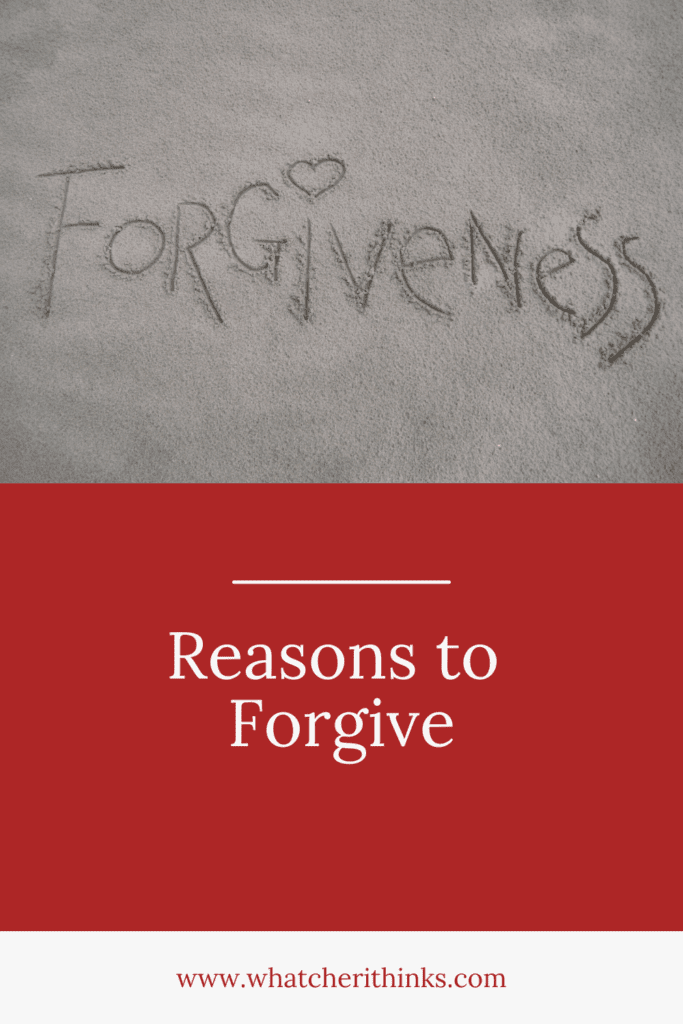How to Forgive Someone and Move Forward with a Clean Slate
How to Forgive Someone and Move Forward with a Clean Slate
Blog Article
Comprehending the Value of Mercy in Healing Relationships
Forgiveness is usually deemed a basic act of letting go, yet its value in recovery relationships expands far beyond plain absolution. It serves as a vital device for psychological release, allowing people to navigate the intricacies of discomfort and bitterness. Comprehending the nuanced differences in between forgiveness and settlement can light up the path toward healthier interactions. As we check out the multifaceted advantages of mercy, one should think about exactly how these concepts can transform not only personal connections however likewise the more comprehensive social material. What remains to be uncovered is the extensive impact mercy can carry individual growth and communal harmony - The importance of forgiveness.
The Interpretation of Mercy
Although mercy is commonly viewed as a simple act of letting go, its definition incorporates an intricate interplay of emotional and psychological procedures. At its core, mercy is the mindful decision to release sensations of bitterness or revenge toward a specific or group that has actually triggered damage. This procedure is not merely about discharging the wrongdoer; rather, it involves a profound psychological transformation that can cause personal growth and recovery.
Forgiveness is complex, often characterized by an individual's interior battle to resolve their pain with the wish for peace. It calls for identifying the misdoings committed, processing the associated emotions, and eventually making an option to relocate onward without the burden of displeasure. This option usually involves a cognitive change, where one reframes their understanding of the criminal and the disobedience, permitting for empathy and understanding to emerge.
Importantly, mercy does not indicate pardoning the actions or forgetting the infraction; it is a calculated act that focuses on emotional health. By specifying mercy in this manner, we can appreciate its function in assisting in healthier partnerships and cultivating emotional resilience, setting the stage for deeper expedition into its benefits.
Emotional Benefits of Mercy
Mercy provides substantial emotional advantages that can profoundly impact a person's psychological health and wellness and total well-being. When a person selects to forgive, they actively release sensations of bitterness, bitterness, and temper, which can otherwise create a hefty emotional burden. This launch usually causes a reduction in stress and anxiousness, promoting a sense of tranquility and emotional security.
Furthermore, mercy cultivates an increased capacity for empathy and compassion. By understanding the point of view of the wrongdoer, people can grow a much deeper psychological durability, which boosts their ability to cope with future difficulties. This procedure not just boosts psychological guideline yet also adds to a much more favorable outlook on life.
Furthermore, forgiving others can strengthen one's self-confidence and self-respect. It enables people to reclaim their personal power, breaking devoid of the adverse cycles of victimhood - The importance of forgiveness. This newly found empowerment can cause much healthier psychological actions and more powerful interpersonal connections
Mercy vs. Reconciliation
The distinction between mercy and settlement is critical in recognizing the characteristics of recovery connections. Forgiveness is an inner process where a specific selects to allow go of resentment and unfavorable sensations towards somebody that has caused harm. It is primarily an individual journey, concentrated on emotional release and self-healing, permitting one to move on without lugging the concern of past grievances.
In contrast, reconciliation includes rebuilding and bring back the partnership to a state of trust and mutual regard. This process usually requires open interaction, energetic participation from both parties, and a dedication to addressing the underlying problems that brought about the dispute. While mercy can happen individually, reconciliation requires the willingness of both individuals to engage in discussion and job toward a shared understanding.
It is very important to note that mercy does not always result this link in reconciliation. An individual may forgive another without deciding to bring back the relationship, specifically if trust has actually been irrevocably harmed or if the connection you can try these out is considered undesirable. Understanding this distinction permits people to browse their emotions effectively and make educated decisions concerning their partnerships.
Actions to Grow Forgiveness
Growing forgiveness is an intentional procedure that includes a number of essential actions aimed at helping with emotional recovery. The primary step is recognizing the pain triggered by the violation. Recognizing one's feelings is vital, as it permits people to process their feelings truly.
Next, assessing the occurrence and comprehending its effect can provide clarity. This reflection must consist of examining the motivations behind the wrongdoer's actions and recognizing that every person is fallible.
The 3rd action includes making a mindful choice to forgive. This decision is essential, as it represents a willingness to allow go of resentment and move forward.
Subsequently, expressing sensations in a positive manner can be useful - The importance of forgiveness. Whether via journaling, chatting with a trusted pal, or looking for treatment, expression of feelings can assist in the forgiveness journey
Real-Life Examples of Mercy
:max_bytes(150000):strip_icc()/iStock-155438831-5a3190014e46ba00369e2295.jpg)
In one more instance, a dense team of close friends faced a considerable break after one member accidentally shared a private secret. Rather than nurturing resentment, the impacted close friend chose to forgive, recognizing the value of valuing the relationship over the blunder. This choice motivated open discussion and eventually reinforced their link.

Conclusion
To conclude, mercy plays a critical role in the healing of connections by helping with the launch of unfavorable feelings and fostering empathy. By identifying in between forgiveness and reconciliation, individuals can take part in a constructive process that boosts psychological health. Implementing actions to cultivate forgiveness can result in transformative end results, strengthening connections and promoting a supportive atmosphere. Eventually, the technique of mercy functions as a stimulant for personal growth and the nurturing of much healthier interpersonal characteristics.

Report this page